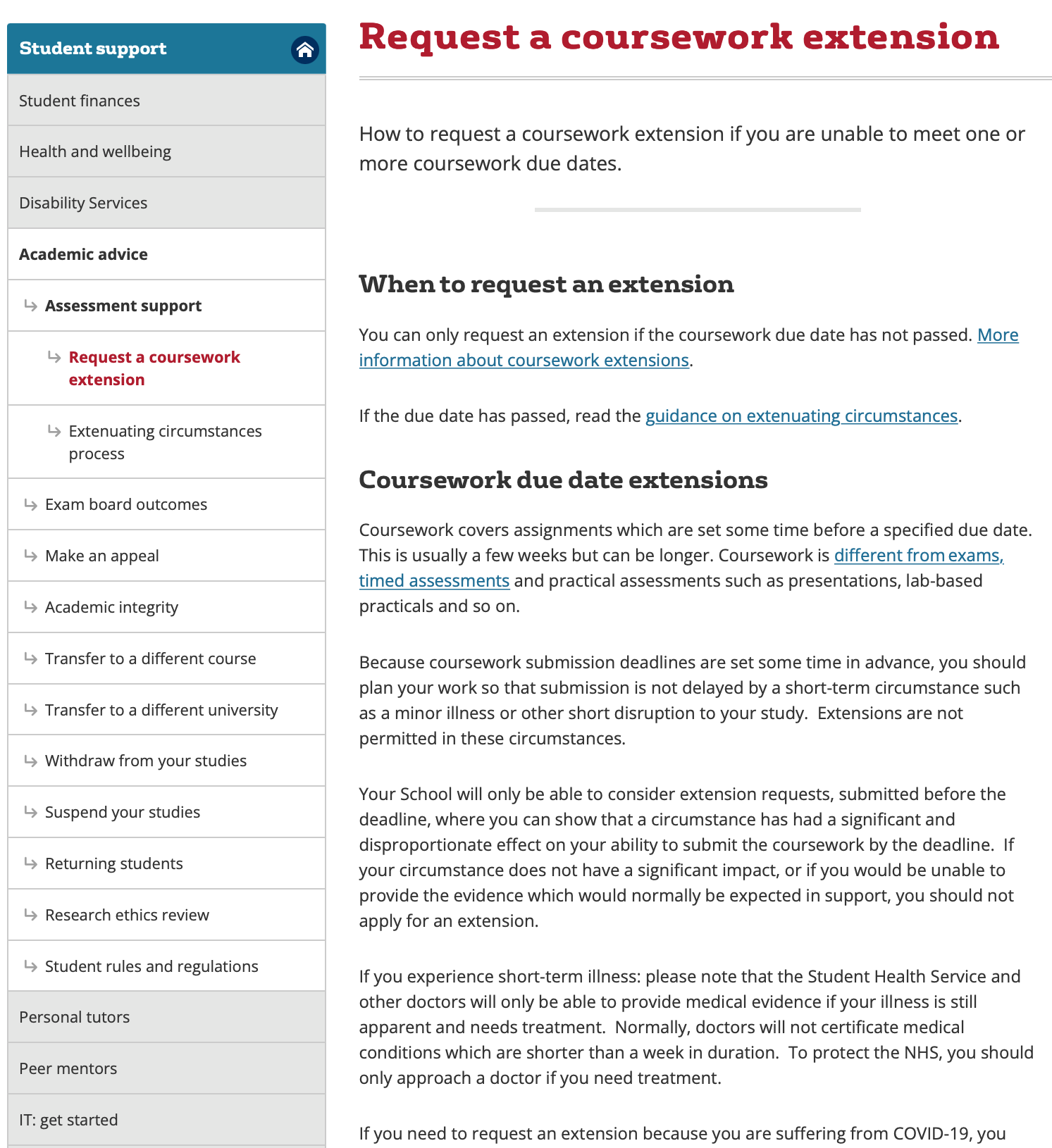By Flossie Palmer, Features Editor
Between 10-21 January, students at the University of Bristol endured the infamous post-Christmas assessment period, in which the false sense of security that festive food and drink have lulled you into is immediately threatened by imminent, and often clashing, deadlines. Although it could be argued that some year groups face more academic pressure than others – with the reminder of unfinished dissertations looming on the horizon for final year students – it is inevitable that everyone faces stress and anxiety during assessment season, which can also be emphasised by other responsibilities and circumstances. This is where the inevitable extension requests form comes in.
Despite being made an available option to all students, being granted an extension on your deadlines can often be much more difficult than expected. While requesting an extension from the schools of Medicine, Veterinary Medicine, Dentistry and Chemistry takes just an email, students belonging to other schools within the University must use an online form. This requires students to provide evidence supporting their statement of why they need an extension, such as a GP letter confirming a medical condition or prescribed medication.

However, Epigram has recently been made aware of the difficulty students have faced this January assessment period in being granted an extension. In one final year group chat, students discussed how they could be successfully granted an extension for mental health reasons after their requests were denied. Some suggested they upload evidence of a positive lateral flow test instead, as the University were more readily granting extensions to students who had contracted Covid-19 amid the surge in Omicron cases across the UK.
This was still not a successful method for all students though, as one admitted that their extension request, which provided evidence of a positive lateral flow test, was still rejected. Students also reported that despite submitting evidence of a positive lateral flow test, if they mentioned in their explanation that they had not yet developed symptoms, their extension request was also rejected.
In a recent survey conducted by Epigram, 43 per cent of students who requested an extension agreed that they found the process of being granted one difficult. Of these students, 78 per cent applied for an extension for reasons other than contracting Covid-19, indicating that while extensions were being more readily granted for Covid related illness, students are still struggling to meet their deadlines due to other detriments, which may include mental illness, bereavement, and other personal reasons.
The University's process for granting extensions based on submitted evidence is 'so inflexible and doesn’t allow for any mental health issues without a diagnosis.'
Epigram have been made aware that when requesting extensions on coursework, some students submitted photographs of their medication, including anti-depressants, as well as scans of death certificates of loved ones as proof of their academic detriment.
Evelyn, a second year English student, highlighted the stress of securing an extension request for mental health reasons; ‘My medical records are not with the NHS, I don’t attend counselling anymore and getting a diagnosis is a huge privilege, let alone getting one in three weeks’ time to provide a letter of “proof” for an extension.’
‘I was told that if I couldn’t provide evidence for my extension, it would be revoked and my work would be graded as a late submission.’
This difficulty was also shared by second year student, Max, who was granted an extension two days after applying, but only under one condition; ‘I needed to present proof of me talking to a professional about my mental health by 5 January (the extension was given on 15 December) despite the long wait times for NHS appointments and me never having reached out to any service in the past.’

‘They didn’t accept the prescriptions I am on so I had to resort to providing GP records,’ which Max explained he would rather have not shared.
Respondents to Epigram’s survey shared similar experiences, with an anonymous student agreeing that the University’s process for requesting and granting extensions is ‘so inflexible and doesn’t allow for any mental health issues without a diagnosis.’ Another student stated that ‘it’s hard to get proof for things like going through a bad mental health period,’ highlighting the University’s dependence on proof of a diagnosis for granting extensions for mental health reasons.
Delays in extensions being granted have also contributed to feelings of anxiety, with students being left in a state of uncertainty over the Christmas period as to whether their requests will be accepted due to University staff being out of office. One student society representative told Epigram that she applied for an extension during the Christmas period after contracting Covid-19, but was not granted one until after the University re-opened on 5 January. ‘I understand that staff need their time off,’ she explained, ‘but I was just left waiting for a reply.’
‘I was told that if I couldn’t provide evidence for my extension, it would be revoked and my work would be graded as a late submission.’
Overall, in Epigram’s survey, 73 per cent of students felt that the University’s policy on extension requests needs to change. For the academic year 2020/2021, the University implemented a self-certification system, in which all students could apply for a one-week extension and were automatically granted one without having to provide supporting evidence. Although these measures were employed as recognition from the University of the impact online learning and Covid-19 was having on students’ work, the recent surge of Omicron cases across the UK in December 2021 brought no such kindness.
Instead, a student society representative suggested that there should have been a ‘safety net for the University to fall back on if Covid got worse’ in terms of granting extensions over the January assessment season. ‘It would’ve been less hassle for them to implement something universally, such as the self-certified one-week extensions, rather than granting each extension individually.’
Bristol’s extension rules exacerbate mental health issues
Extenuating circumstances to be offered to students impacted by BLM movement
However, with no news post-January assessment season about potential changes to the extension request process, the best students can hope for is continuing to use the service despite its flaws. One society representative advises that all students who have struggled to secure an extension, especially those with ongoing mental illnesses or personal struggles, should also ‘apply for extenuating circumstances on every essay – use it to its full capacity because it’s your degree!’ She urged that ‘No matter what situation you are in, use the extension requests that are there.’
Despite students having to provide tangible evidence for something as hard to prove as mental illness, she admitted that ‘you have to go along with the system sometimes’ and use it to its full effect, even if that means submitting photographic evidence of a positive lateral flow test in order to access the support you need. Perhaps, with students being pushed to these extremes in a desperate bid to gain further support in difficult circumstances, something needs to change.
Featured Image: Epigram / Will Charley
Do you think that the University's extension policy should change?









